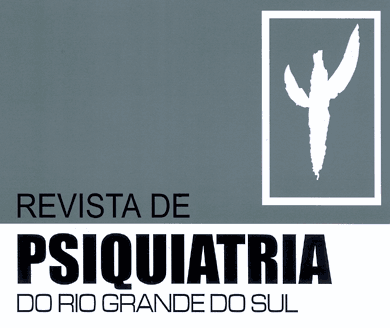EDITORIAL
Listening to the patient: let us not move away from this
It may seem strange and even absolutely redundant and timeless that, in the 21st century, we have to remember that, in medicine in general and especially in psychiatry, we must listen to the patient. It is worth stressing that we are not only talking about a type of listening that is looking for signs and symptoms or answers so that we can fill in diagnostic criteria or research instruments. We are talking about a committed, interested listening, linked to what the essence of our profession should be: people, with all their complexity and vicissitudes. However, our subject is complex by nature, since, for also being a human science, it comprehends a mixture with art. Which art are we referring to? We emphasize the art of searching in the relationship with the other the possibility of understanding suffering and promoting conditions for relief. But how can this art be developed? We undoubtedly need to rescue the importance of a physician-patient relationship. It is no longer possible to disregard the interplay of subjectivities involved in such relationship. Psychiatrists and their patients are involved in an intense relationship, but with asymmetrical functions and different ethical responsibilities. Since the first contact with the patient, professionals are responsible for trying to know him, assess his difficulties, anxieties, problems and offering the most appropriate and precise treatment. But how can you really know the other without dedicating some time to look and listen to the suffering that patients often cannot express in words?
It may seem strange to use the editorial of our journal to discuss this topic. It may seem strange to alert readers, since in this issue we once again adopted the great idea of publishing editorials by invitation. In this issue, we are awarded with an editorial written by our colleague Patrícia Picon, who discusses the need of having research instruments validated into Portuguese. As written by our colleague in her editorial: "In psychiatry, the problem is that the phenomena to be measured are neither objects nor even events in the literal sense. Psychiatrists are interested in abstract phenomena." It may seem contradictory that the same journal that emphasizes the need of focusing on the unique moment of the physician-patient relationship with regard to what is special about it - exclusivity - at the same time emphasizes the publication of instruments. However, for us, editors of Revista de Psiquiatria do Rio Grande do Sul, there is no contradiction in this attitude.
On the one hand, we have established ourselves in the Brazilian scientific scenario as a reference journal for publishing articles dealing with validation of instruments into Portuguese, making several full scales available for the psychiatric community over the past 3 years almost uninterruptedly. Such instruments are also undoubtedly of great help to clinicians who are away from university, so that they can improve their psychopathological or therapeutic assessment based on these instruments. On the other hand, we understand that, even if more instruments are validated and more original research results are increasingly generated with better quality in our country, daily psychiatric practice will never dismiss its essence: humanized listening to each patient in particular. We can and should try to measure "abstract phenomena," but our clinical practice needs something else. The idea of having more conversations with patients may seem too obvious or well known, but what is old is not always out of fashion or deserves to be disregarded (otherwise, we would have to consider Mozart, Bach, Beethoven and others obsolete). We believe the art or handcraft that will be practiced by each one of us lies on a good mixture of acknowledging the legacy and experience of pioneers and the new trends - in a peculiar form of serving the patient who searches for medical advice.
That is why we understand that, together with original research studies, we also need a production of review studies with critical comments on the background of, for example, psychotherapies, which may not only disclosure opinions, but also deepen the knowledge on this issue. We want to confirm the position of Revista de Psiquiatria do Rio Grande do Sul as a fruitful place of integration for the development of clinical psychiatry and psychotherapies. Therefore, our journal is still the amplifier of such plural attitude that is the root of psychiatry in Rio Grande do Sul. Following this line of thought, it was with great pleasure that we received the central theme defined by the Brazilian Psychiatric Association for the XXV Brazilian Congress of Psychiatry, to be held in Porto Alegre in 2007: "Psychiatry for the person: welcoming plurality."
It may seem incredible and strange - as we mentioned earlier in this text - that we have, in the 21st century, to remember that everything we do in psychiatry (including our scientific publications) should not, under no circumstances, stop pursuing the only goal: our patients. In order to be effectively and affectively together with them, basic and accurate diagnostic and treatment methods are not enough. It is in the interaction with patients - this unique field - that we will find the person. Listening to them, therefore, is our first task. Or, as recently said by Maestro Ricardo Mutti in an interview to the Italian newspaper La Repubblica: "This is the implicit condition of my work: in theory, one should tell the orchestra what to do, but in practice one learns how to do it from the orchestra." Let us thus be humble in our psychiatric practice and start believing in this contradiction: let us also learn how to do it by listening to our patients. And let us not move away from this.
Carmem Keidann and Flávio Shansis
Editors
Publication Dates
-
Publication in this collection
16 Nov 2006 -
Date of issue
Aug 2006

